
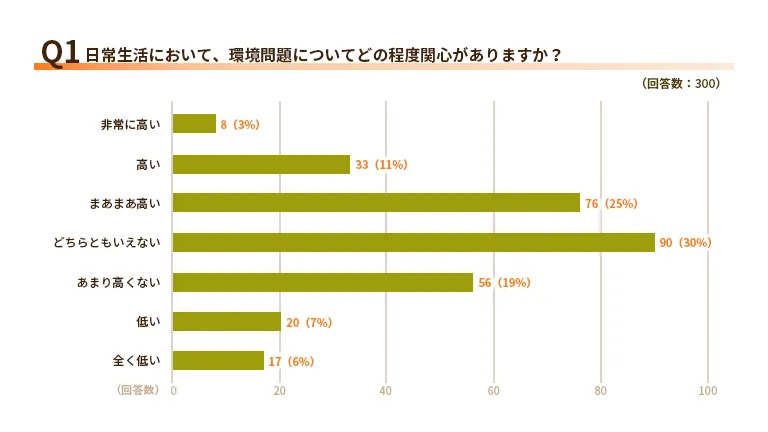
Exploring Awareness and Actions Towards Environmental Contributions in Daily Life
The Current State of Environmental Awareness and Action
In June 2025, a comprehensive survey was conducted with 300 respondents to understand their awareness and actions related to environmental issues in their everyday lives. As global concerns over climate change and resource depletion grow, individual responsibility becomes increasingly important.
Awareness of Environmental Issues
The first question posed was regarding the level of concern participants have towards environmental issues in their daily lives. Remarkably, 25% of respondents indicated a moderate level of interest, while a considerable 62% expressed either no concern or a minimal degree of interest. Only 14% of respondents reported high or very high levels of concern about environmental issues. This reveals a significant disparity in how individuals perceive environmental problems.
Actions Taken Towards Environmental Solutions
The survey then inquired about concrete actions respondents take to address these environmental issues. More than half (53%) of the respondents reported that they either take some action or occasionally do so, with 28% actively engaging in a variety of environmentally friendly habits. However, a notable 31% admitted they do very little, and just 2% reported being highly proactive in their efforts. This gap underscores the challenge of transforming awareness into action.
Common Practices for Environmental Contribution
When asked about specific contributions, top responses included "sorting waste and recycling" (15%), "using reusable bags and bottles" (14%), and "reducing household energy consumption" (14%). These habitual actions are easily implementable, suggesting many people are more inclined towards simpler, everyday practices rather than more demanding initiatives like donations to environmental organizations or participating in community clean-ups.
Reducing Food Waste
Food waste emerged as another crucial topic, with significant focus on practices individuals adopt to mitigate it. Key strategies included purchasing only necessary items (26%), checking expiration dates (26%), and being aware of refrigerator contents (22%). The results indicate that families are increasingly conscious of managing food, although strategies like repurposing leftovers garnered less interest.
Interest in Energy Services
The survey gauged interest in energy services that contribute to food waste reduction. Over half (56%) expressed some degree of attraction to such services. However, a large group (34%) remained neutral, suggesting a disconnect between energy services and food waste, indicating the need for better education on such topics.
Barriers to Environmental Contributions
The main challege identified was the difficulty in realizing tangible effects from environmental efforts (21%). Other barriers included perceived high costs (14%) and efforts (15%). Furthermore, 9% admitted uncertainty about how to contribute effectively, implying a gap between motivation and action.
Preferences in Eco-Friendly Products
Regarding eco-friendly products, price (52%) was paramount, followed by quality and functionality (20%). Surprisingly, although some respondents valued environmental impact (14%), factors like design and brand image received minimal emphasis, highlighting the economic motivations driving consumer choices.
The Significance of Environmental Activities
When considering the impact of environmental contributions on personal well-being, a majority suggested that such activities enhance life satisfaction and happiness. This finding implies that even individuals with less interest in environmental issues recognize the intrinsic benefits of engagement.
Corporate Responsibility
The survey illustrated that 78% of participants believe businesses have a social responsibility to engage in environmental initiatives. Only 4% disagreed, presenting a clear expectation for corporate accountability in environmental stewardship.
Sources of Information on Environmental Issues
Television (39%) and internet news (33%) were the leading sources of environmental information, whereas less engagement with company or environmental organization websites was noted, hinting at a reliance on more accessible media.
Desire for More Information
A significant 56% of individuals expressed a desire for greater knowledge about environmental contributions, though 30% remained neutral, indicating a willingness to learn despite varying levels of motivation.
Societal Responsibility in Environmental Issues
Lastly, participants were asked about the responsibility for environmental solutions. An overwhelming 63% deemed both individual and corporate efforts equally crucial, demonstrating the need for collaborative action to tackle environmental challenges effectively.
Future Engagement
When reflecting on future environmental contributions, respondents commonly mentioned energy conservation, water saving, minimizing food waste, and recycling as priorities, signaling a preference for practical actions within manageable limits.
Expectations Towards Energy Providers
Finally, when asked about expectations from energy providers such as EneOne Denki regarding environmental contributions, many called for clearer information on CO2 reduction measures and cost-effective clean energy options. The survey highlights a growing recognition of the importance of balancing environmental sustainability with economic practicality.
Conclusion
The survey results indicate a growing awareness of environmental contributions while also highlighting the need for manageable, actionable steps that resonate with everyday lives. EneOne Denki aims to support this journey by offering energy solutions that facilitate environmental responsibility without financial strain. Explore more about how EneOne Denki’s services can align with your values for a sustainable future.
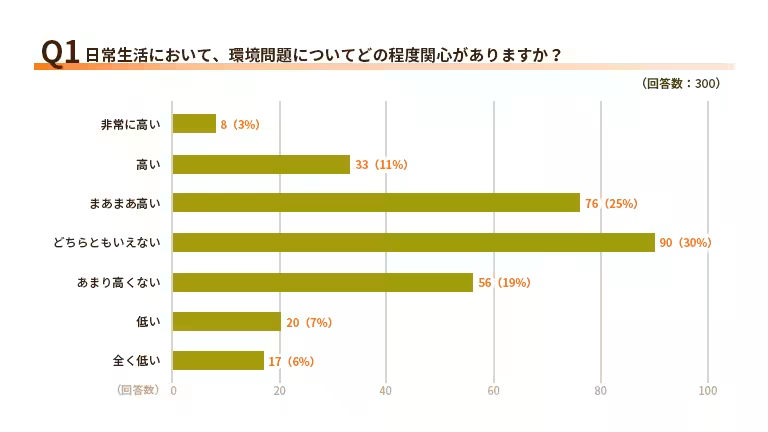
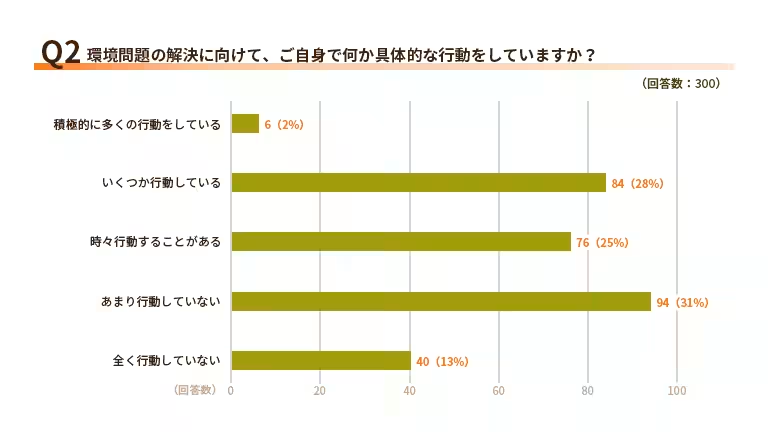
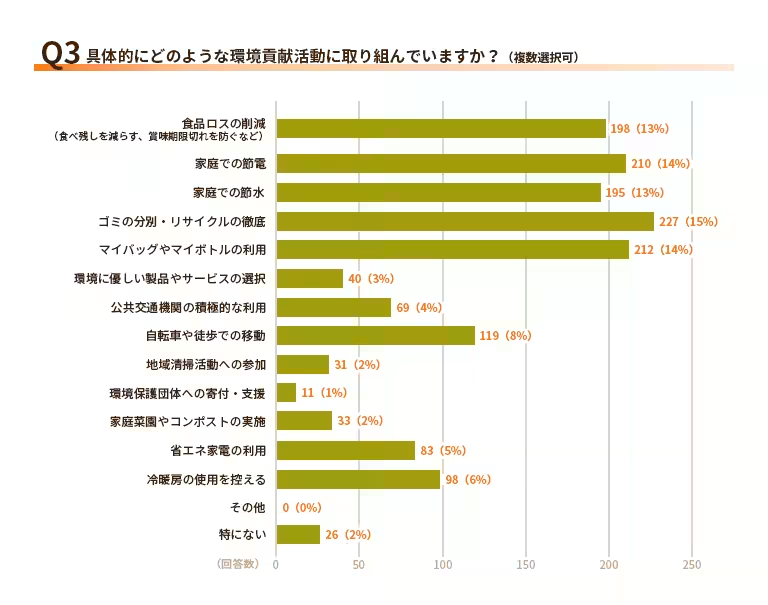
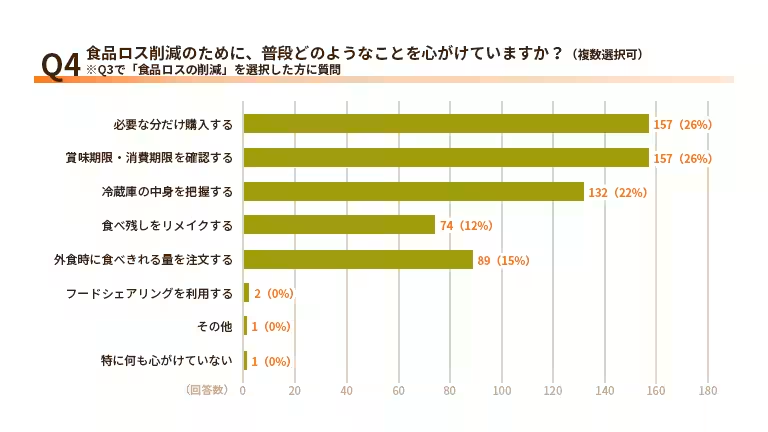
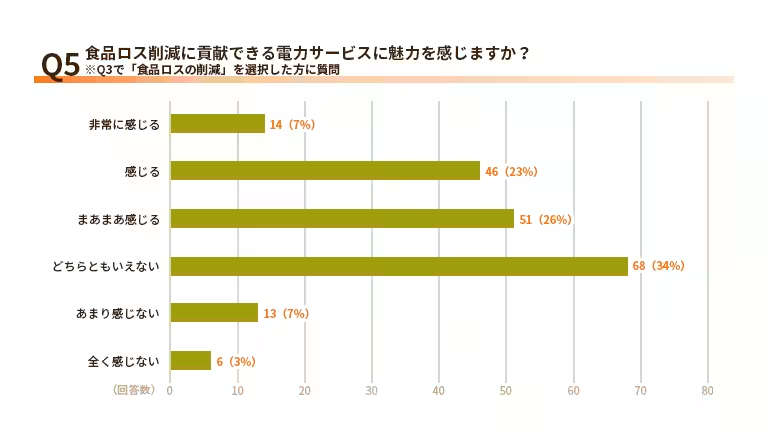

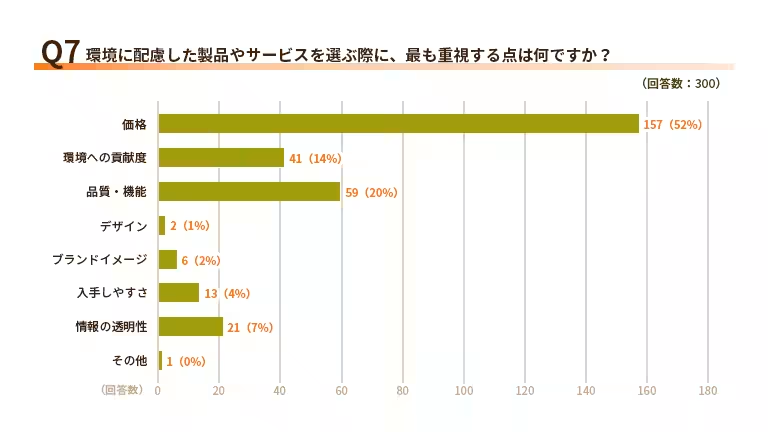
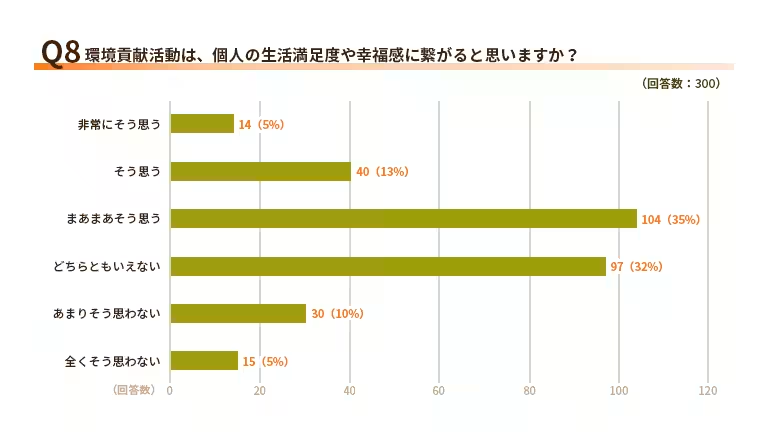
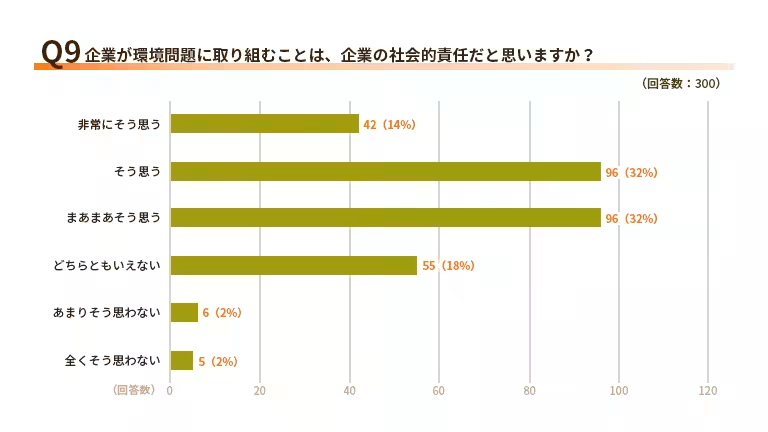
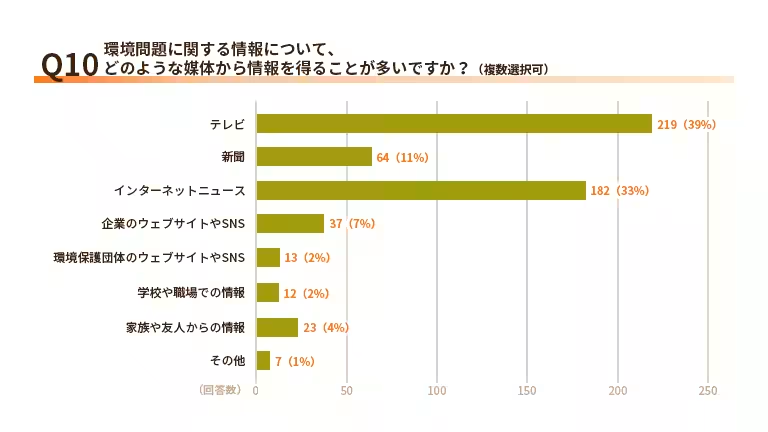
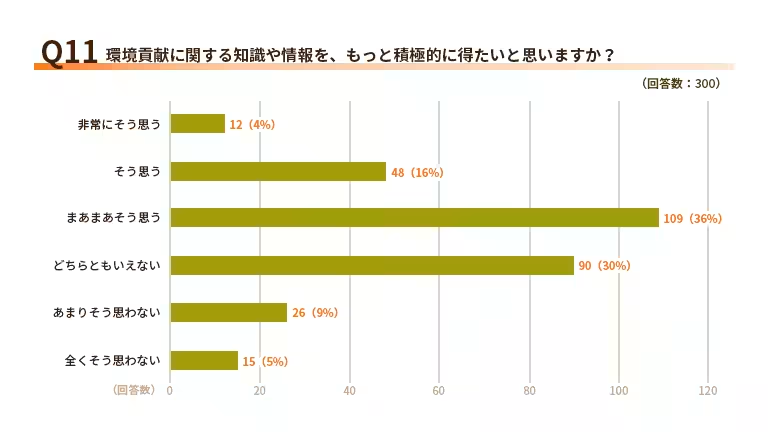
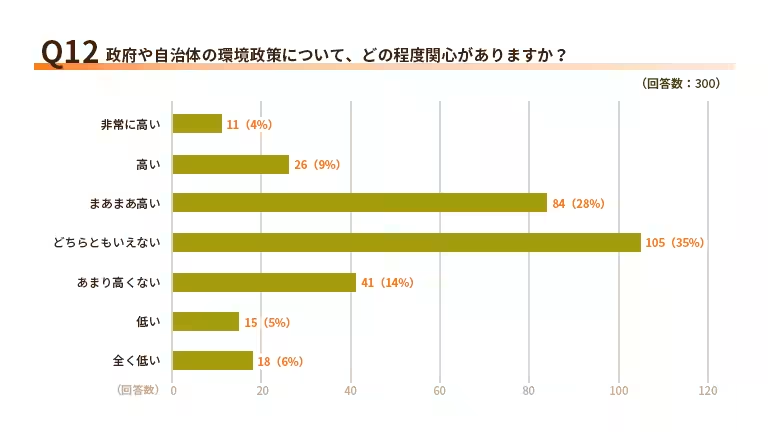
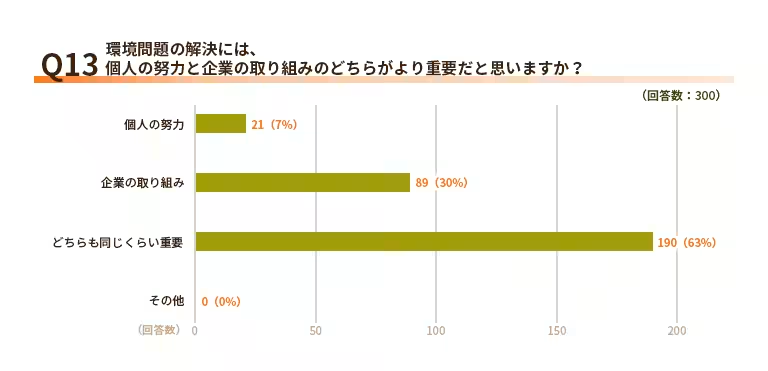

Topics Environment)










【About Using Articles】
You can freely use the title and article content by linking to the page where the article is posted.
※ Images cannot be used.
【About Links】
Links are free to use.